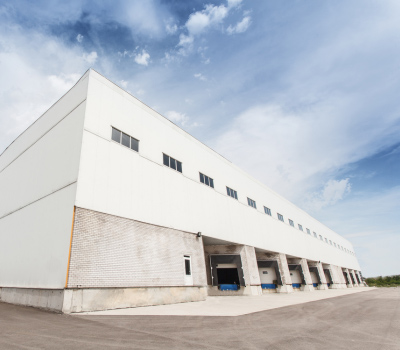What is a distribution center?
What is a Distribution Center?
A distribution center is a facility positioned within the supply chain ecosystem, tasked with the reception of products from suppliers, their meticulous processing, secure storage, and subsequently, their dispatch to retailers, wholesalers, or end consumers. Distribution centers assume a vital role in the intricate framework of logistics and supply chain management, orchestrating the seamless movement of goods. The list below outlines the key functions are characteristics of distribution centers.
- Receiving: Distribution centers receive shipments of products from various suppliers. These products are typically in bulk quantities and need to be sorted and organized.
- Sorting and Processing: Upon arriving to the facility, products may require to be sorted, inspected, labeled and repackaged for distribution. This step ensures that products are in the right condition and are ready for distribution.
- Storage: Distribution centers have storage areas where products are warehoused until needed for distribution. Production are commonly organized on racks or shelves in a way that allows for easy access and retrieval.
- Order Fulfillment: Distribution centers are responsible for fulfilling customer orders. This includes picking products from storage, packing them into boxes or containers, and preparing them to be shipped.
- Inventory Management: Managing inventory level is crucial to ensure that products are available when needed, but not overstocked. Distribution centers operate inventory management systems to keep track of stock levels and reorder products as necessary.
- Shipping and Transportation: Once orders are ready, distribution centers coordinate the shipping and transportation of products to their intended destinations.
- Cross-Docking: In some cases, distribution centers use a cross-docking strategy, where products are received and immediately transferred to outbound trucks without being stored. This approach is often used for fast-moving goods to reduce storage time.
- Value-Added Services: Some distribution centers offer additional services such as product assembly, customization, or quality control before being shipped.
- Returns Processing: Distribution centers may handle returned products, inspecting them for damage or defects and restocking them if they meet quality standards.

Conclusion
Distribution centers are strategically sited within supply chains to optimize the fluidity of product distribution while concurrently curbing transportation costs. These operational hubs find widespread application across a spectrum of industries, encompassing retail, e-commerce, manufacturing, and wholesale distribution, serving as the linchpin for the efficient and punctual delivery of merchandise to both clientele and retail establishments. The specific operations and the size of a distribution center can vary widely depending on the industry, the type of products being handled, and the scale of distribution required.
Looking to learn more about transportation? We are always open to answering any questions! Reach out to us today through operations@wood-hall.com or give us a call at 519-213-1000!
-The Team at Wood-Hall Logistics

